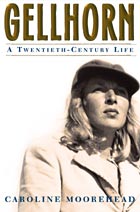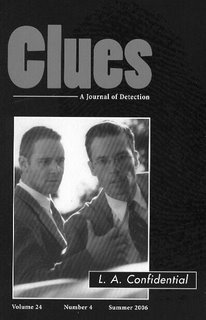 Martha Gellhorn.
Martha Gellhorn.I love biographies, especially literary ones, and Caroline Moorehead's
Gellhorn: A Twentieth-Century Life is a fascinating one. Gellhorn's considerable literary gifts were often overshadowed by her five-year marriage to Hemingway.
Best known for her reporting on the Spanish Civil War
, she was profoundly and permanently affected by seeing Dachau during her reporting on WWII. The section on her reporting on the Vietnam War is particularly interesting. The most fun bit deals with Gellhorn's participation in the Mary McCarthy-Lillian Hellman row in 1980 (Gellhorn had traveled on the same ship as Hellman en route to the Spanish Civil War and disliked her). For a piece for
The Paris Review (edited by George Plimpton), Gellhorn coined a new word,
apocryphiar, or one who fabricates a story with himself or herself as hero, and discounted Hellman's account (in
Pentimento) of life in Madrid at the time, calling Hellman's words "whoppers." She said in a letter to a friend, "[Hellman had] used the Spanish war as a garment to drape herself in."
Moorehead also has edited a volume of Gellhorn's letters; more information on that
here.
 CLUES Summer 06 issue published
CLUES Summer 06 issue published


